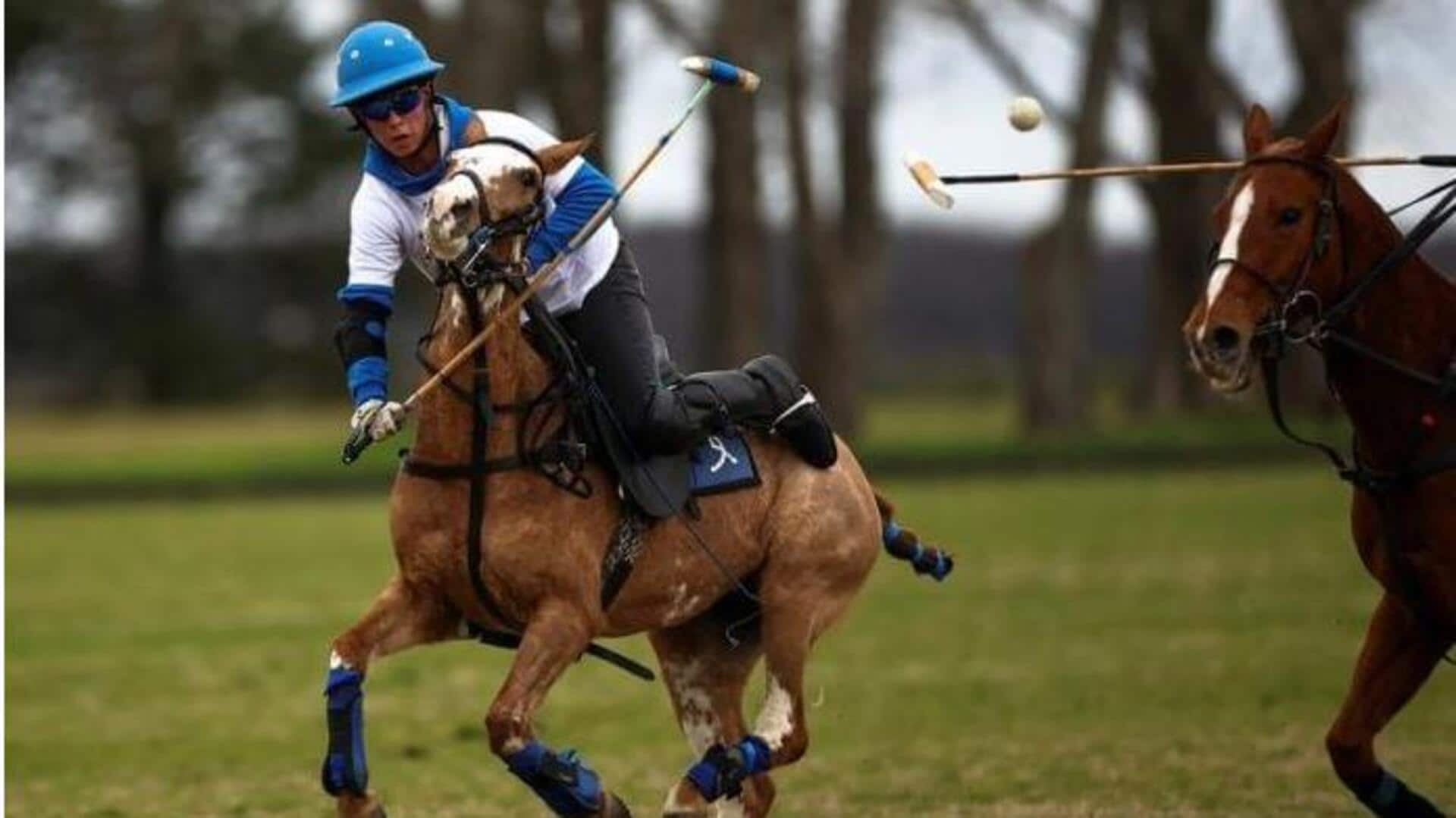
Can genetically edited horses be the future of polo?
What's the story
The world of polo is on the verge of a major transformation with the introduction of five genetically edited horses. These 10-month-old foals are clones of a champion horse named Polo Pureza (Polo Purity) and were created using CRISPR technology by Argentine firm Kheiron Biotech. The company hopes to revolutionize horse breeding through gene editing, which involves customizing DNA with precision "genetic scissors."
Technological advancement
Gene editing to increase muscle fiber
Kheiron Biotech's CRISPR technology has been used to reduce the expression of the myostatin gene, which limits muscle growth. The goal is to increase muscle fibers for powerful movements and transform these horses into sprinters. However, despite Argentina's long history of using reproductive technologies like cloning for breeding elite horses, the sport's national body and breeding association are resisting this new development.
Resistance
Breeding associations are not in favor
The Argentine Polo Association has banned GE horses from competition, with its president Benjamin Araya saying, "This takes away the charm, this takes away the magic of breeding." Meanwhile, the Argentine Association of Polo Horse Breeders plans to monitor these genetically edited horses for four to five years before deciding whether to register them as Argentine polo ponies.
Uncertainty
How will they enforce the ban?
It remains unclear how the sport's national body will enforce a ban on GE horses, as Argentine regulations do not distinguish between cloned, genetically edited, and conventionally bred horses. Some breeders have expressed concern that while they appreciate clones for preserving bloodlines, gene editing could go too far and threaten their business.
Controversy
Breeders are skeptical
Marcos Heguy, a breeder and former professional polo player, criticized gene editing saying, "This ruins breeders." However, Eduardo Ramos, who started breeding in the 70s, said that breeders were also skeptical of other biotech advances like embryo transplants and cloning. He added, "Science and technology will keep advancing," suggesting that those against such practices won't be able to stop them.
Evolution
Polo's history in Argentina
Polo, a game similar to hockey on horseback, was introduced in Argentina by British immigrants who established the first polo club in Buenos Aires in 1882. The sport is expensive as players ride several horses per game. However, unlike horse racing, polo allows cloned animals. The world's first cloned horse was born in 2003 and Adolfo Cambiaso, considered the best player globally, popularized polo clones after one of his prized Cuartetera's clones sold for $800,000 at an auction in 2010.
Transition
Kheiron's history and controversy
Inspired by the auction of Cambiaso's prized Cuartetera clone, Gabriel Vichera, a biotech doctoral student at the time, co-founded Kheiron with businessman Daniel Sammartino. Their first cloned horse was born in 2013. In 2017, Kheiron used CRISPR genetic editing to produce nine GE horse embryos for research purposes. This move upset some prominent figures in Argentina's polo world who were concerned about the possibility of gene-edited horses entering the sport.